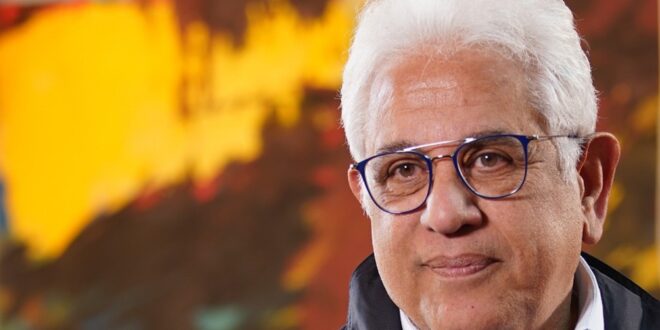Let us explore the meaning of faith within the philosophical framework of consensus as understood by clerics and priests throughout history. This consensus often suppresses critical thinking and interpretation, which thrive on pluralism of meanings and respect for differences—values that consensus inherently rejects.
This reflection naturally leads us to Averroes (Ibn Rushd). The Egyptian philosopher Dr. Mourad Wahba writes:
“Faith means that the heart is committed to believing in a message it accepts. Over time, the term ‘belief’ evolved into ‘dogma,’ signifying a fixed doctrine. Consequently, dogma supplanted belief and became the product of an external authority claiming it to be the essence of religion and faith. The believer is then required to accept it, either by justifying it intellectually or by submitting to it unquestioningly. In both cases, the doctrine becomes obligatory. Those who crafted it are labeled theologians, blending faith with reason—but only insofar as reason aligns with a predetermined faith, not reason in its absolute sense.
This means that reason and thought are confined to a framework dictated by authority, beyond which no thinking is permitted.”
I offer an additional interpretation:
Faith is the act of believing in something without evidence and acting accordingly. Thus, the faith of humanity a thousand years ago differs from my faith today. As science advances, much of what was once accepted without evidence has been proven or disproven. Consequently, the domain of faith has shifted—from the heart to the mind. The more knowledge the mind acquires, the less room there is for traditional faith.
In other words, reason—reason alone—is the path to God, not blind belief in what lacks evidence, as it was in the past.
A friend of mine, who frequently debates with me, once said:
“For me, faith of the heart, faith of the mind, and evidence are complementary, forming a single alloy. Its polished surface reflects the elegant harmony of the universe and the unity of its Creator. Extremism, however, shatters this alloy, scattering its fragments to produce hatred, cruelty, resentment, and crimes that have claimed millions of lives throughout history. There is no difference between extremism in religion, political ideology, or racial and social discrimination.”
In response, I recalled a story about Ibn Rushd (born April 14, 1126, in Cordoba – died December 10, 1198, in Marrakesh). When his student wept as they watched Arabs burn his books, Ibn Rushd turned to him and said:
“If you cry for the state of Muslims, know that all the oceans of the world would not suffice for your tears. But if you cry for the burned books, know that ideas have wings—they will fly back to their owners.”
This profound statement reflects the dire state of the Muslim world in the 12th century, a condition that warranted mourning.
The tragedy of history is that Ibn Rushd’s words remain eerily relevant today, despite his having died centuries ago. Yet, some in our contemporary reality attribute our dire conditions solely to external enemies, conspiracies, or criminals. Ibn Rushd, however, pointed to an internal malaise long before colonialism or external conspiracies emerged.
If humanity across time shares tendencies toward extremism in thought, violence in enforcing beliefs, the assassination of just leaders, and persistent economic and political decline, then there must be a unifying factor. I may be mistaken, but at this moment, Islam comes strongly to mind. Christianity also comes to mind, particularly during the era before the separation of church and state, with its tragic repression of science and scientists during Europe’s Dark Ages.
Because I strive to see the best in people and seek truth in what I read, I view Islam as embodying reason, tolerance, love, science, compassion, forgiveness, and mercy. Yet, I recognize that my perspective belongs to a minority. Historically and collectively, Islamic societies often act contrary to these values. Instead, they frequently exhibit traits of severity, violence, authoritarianism, and the exploitation of religion for power and its perpetuation.
As for me, I choose different values: love, reliance on reason and science, tolerance, an appreciation of life’s beauty, and respect for humanity.
However, I must admit that when I observe Islamic nations persisting in behaviours contrary to these ideals—leading to escalating poverty, ignorance, and violence—I sometimes question my own interpretations and convictions. This, in turn, strengthens my belief in the necessity of separating religion from the state and politics.
History has repeatedly shown that extremists—whether in Judaism, Christianity, Islam, or any other ideology—share striking similarities in the core. The societies that have thrived are those that separated religion (as a personal relationship with the Creator) from politics, governance, and worldly affairs & Those who look to the core of values of religions not to the marginal differences of practising habits .
 Dr. Hossam Badrawi Official Website
Dr. Hossam Badrawi Official Website


